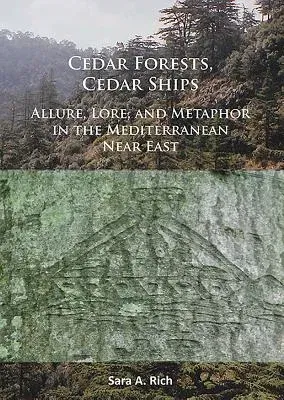Sara A Rich
(Author)Cedar Forests, Cedar Ships: Allure, Lore, and Metaphor in the Mediterranean Near EastPaperback, 19 April 2017

Qty
1
Turbo
Ships in 2 - 3 days
Only 5 left
Free Delivery
Cash on Delivery
15 Days
Free Returns
Secure Checkout

Print Length
290 pages
Language
English
Publisher
Archaeopress Archaeology
Date Published
19 Apr 2017
ISBN-10
1784913650
ISBN-13
9781784913656
Description
Product Details
Author:
Book Format:
Paperback
Country of Origin:
GB
Date Published:
19 April 2017
Dimensions:
24.38 x
17.53 x
1.52 cm
Genre:
Ancient (To 499 A.D.)
ISBN-10:
1784913650
ISBN-13:
9781784913656
Language:
English
Pages:
290
Publisher:
Weight:
698.53 gm